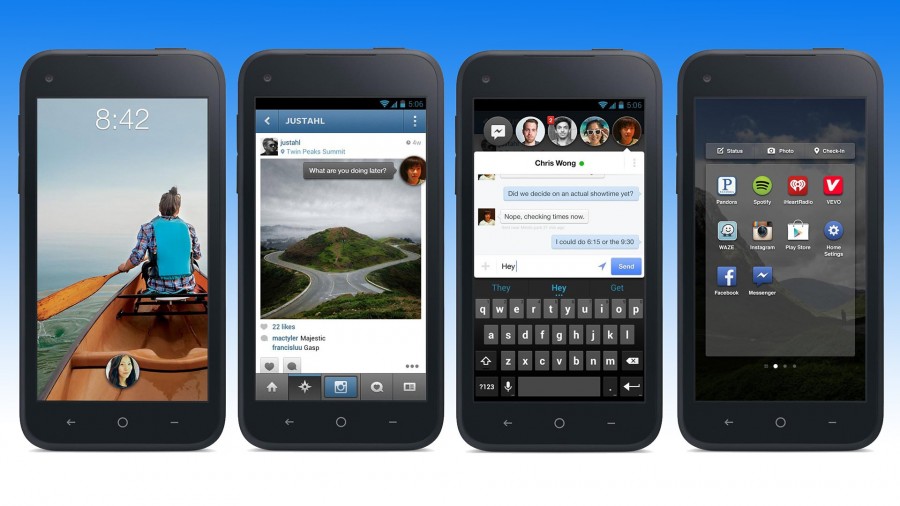Facebook Home seems to have taken every tech blog by surprise, and for just a few days, may have seemed like a must-needed bandaid to their stock (NASDAQ:FB). For those that missed the news, essentially, Facebook Home is a faux lock screen that appears in place of your phone’s default OS operating system. So for example, if you have an Android HTC First, instead of unlocking your screen to see this, you’re now faced with updates from your closest Facebook friends, unread inboxes, and every other annoying post that your friends usually share. What’s more, is that Facebook’s integration doesn’t stop at the lock screen, it continues to be present, through any app, allowing you to continue a chat regardless of what app you have open on your phone. This can be great, allowing a user to feel more integrated with their online profiles, but this can also be deadly to the brand of powerful software companies who agree to implement Facebook Home into their mobile operating systems.
Google’s mobile smartphone OS, Android, allows for you to install Facebook Home onto it, and for Facebook Home to take over your smartphone experience. And by “take over”, I mean that quite literally. You’ll be followed around every app of your phone with Facebook’s “Chat Heads”, essential profile pictures of your friends that are talking to you over Facebook Messenger will appear on top of whatever app you’re using whenever a message comes up. I’m not going to get into the UI and start reviewing the software from a technical perspective, but I’m going to talk about it’s effect on the brand of software companies agreeing to support Facebook Home (as oppose to their proprietary OS).
The biggest sacrifice that both software and hardware companies are putting at risk, is the loss of the phone’s intended user experience. A brand is defined by what your user-base says about it, and if your user-base is talking about your brand in terms of a third-party experience on it, then you have to consider the hit that will have on your brand’s value. Google supports it as an app installation for Android, their mobile operating system that comes installed on many Samsung and HTC smartphones, just to name a few. Does Google see this as impacting their brand image negatively, or positively? That’s a good question, but what is for sure is that their Android experience will become diluted into an open-source environment if they allow other companies to replicate what Facebook has done with Home. Will Google want their Android OS to have the open-source and personal feeling that comes with allowing third-parties to take over the user experience? I don’t think they do, and you won’t be seeing further integration come into Android’s OS from smaller web giants for as long as Google sticks to their ecosystem of Google-branded services. (To further develop their brand touch-points, why didn’t they develop something similar for Google+ before allowing Facebook to make their giant entrance with Home?)
On the other side of the neighbourhood, BlackBerry (formerly RIM) has announced earlier this week that they will be making BBM (BlackBerry Messenger, and IM-like chat application that uses cellular data) compatible across other platforms, a formerly proprietary app for their own BlackBerry phones. So what does this mean? Is it going to hurt Apple’s iMessage, or has BBM already lost enough of it’s steam to become an irrelevant app? BlackBerry’s jump to make BBM cross-platform lies behind their goal of encouraging a shrinking number of BlackBerry developers to grow their confidence in the software, however, is it going to be the bait that keeps BlackBerry’s respect alive?
On the other hand, I don’t see it endangering Apple, at all. If BBM were to be made cross-platform back in BlackBerry’s prime days, then this would be a real threat to Apple’s brand. This would have been before Apple released iMessage, and before they had a strong instant messaging software that now works across your Mac, iPad, and iPhone. Back in these days, BBM was part of BlackBerry’s brand, it was part of their brand’s voice, and definitely a perk in using a BlackBerry. Now, the novelty of BBM has died, Apple has innovated through iMessage, and BlackBerry is once again late to the party.





